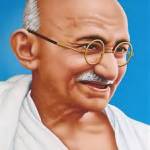
More on True (or false) stories. What’s best?
 Someone wrote to me recently regarding the question I blogged about in October: “True or False? When telling a good story, does it matter?
Someone wrote to me recently regarding the question I blogged about in October: “True or False? When telling a good story, does it matter?
This person asked me, “What’s the best story – real or made up?”
This is a great question.
Many people tell stories for therapeutic or inspirational effect.
Ministers, motivational speakers, TED talkers, therapists… all are attempting to influence their listeners through stories.
What sort of stories works best for that?
Should they be “real stories,” (i.e. drawn from one’s own life experience) or should they be a story like a fable or an anecdote? Or what if the story is something that is made to sound AS IF it is from one’s own life experience when it is either completed fabricated or is somebody else’s life experience? Does that ruin the effect?
My answer is it doesn’t really matter in the short term – the message of the story is what counts and if a made-up fable does the job then that’s as good as your real life adventure story. Keep in mind Aesop’s fables were written 2,500 years ago and we still know them and are influenced by them.
However, when it comes to stories about your self, I think it is better to stick to the truth. You can still tell an effective story about someone else’s experience if you want to use their story, just give credit where credit is due. Besides, if you make up a story about yourself and pass it off as being true, it CAN come back and bite you in the end.
As an example, Lance Armstrong did mighty well for himself and his charities when his story about being a drug free champion was believed. When people found out that it had all been a lie, however, it all went away just as quickly.
It reminds me of a story that took place a few years ago in India.
Back in the 1930s a young boy had become obsessed with eating a lot of sugar. His mother was very upset with this. But no matter how much she scolded him and tried to break his habit, he continued to satisfy his sweet tooth. Being totally frustrated, she decided to take her son to see Mahatma Gandhi, who was the boy’s idol.
She had to walk many miles across the country, for hours under scorching sun to finally reach Gandhi’s ashram. There, she recounted her difficult journey and shared with Gandhi her unpleasant situation:
“Bapu (Father), my son eats too much sugar. It is not good for his health. Would you please advise him to stop eating it? ”
Gandhi listened to the woman carefully, thought for a while and replied:
“Please come back after two weeks. I will talk to your son.”
The women looked confused. Then she took the boy by the hand and went home. She made the long journey home and in two weeks time made it once again as Gandhi requested. When they arrived, Gandhi looked directly at the boy and said:
“Boy, you should stop eating sugar. It is not good for your health.”
The boy nodded and promised he would not continue this habit any longer. The boy’s mother was puzzled. She turned to Gandhi and asked,
“Bapu, Why didn’t you tell him that two weeks ago when I brought him here to see you?”
Gandhi smiled and whispered in her ears.
“Because two weeks ago I, too, was eating too much sugar!”
“You Must First Be The Change You Want To See In This World” – Mahatma Gandhi.





 Download Doug O’Brien’s paper,
“Be your Best with Self Hypnosis”
Download Doug O’Brien’s paper,
“Be your Best with Self Hypnosis”